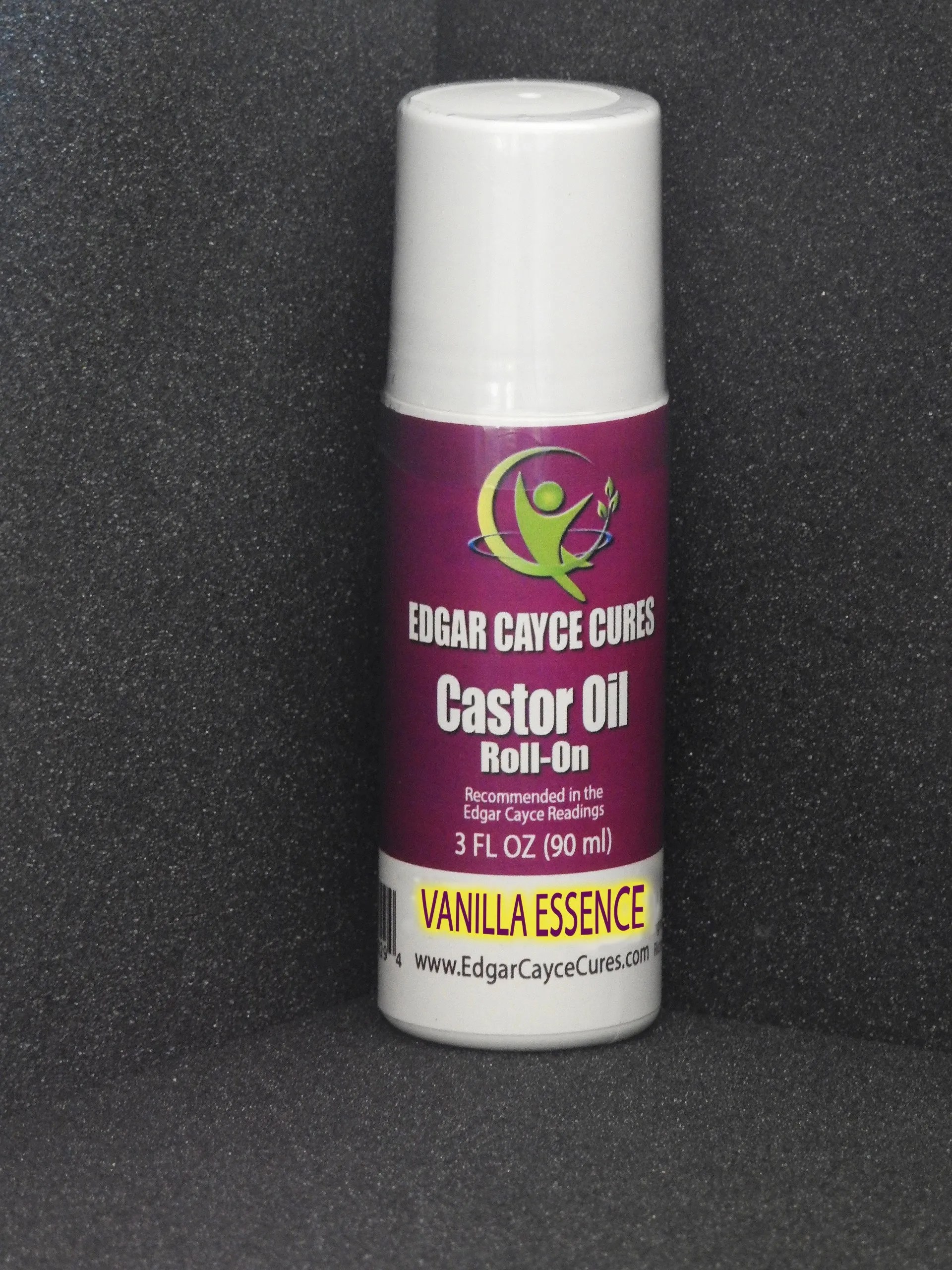Ever heard of using castor oil for, well, almost anything? Edgar Cayce, the renowned “sleeping prophet,” certainly did. He believed this humble oil possessed significant healing potential. This guide delves into Cayce’s perspective on castor oil, exploring its traditional uses, his specific recommendations, and how to use it safely. Whether you’re a natural health enthusiast or simply curious about castor oil’s purported benefits, let’s explore Cayce’s insights and the available evidence.
Understanding Castor Oil: From Ancient Remedies to Modern Applications
Castor oil, that thick, viscous liquid, has a rich history spanning diverse cultures and traditional healing practices. From ancient Egyptians soothing irritated eyes to Ayurvedic practitioners addressing various ailments, castor oil’s use is deeply rooted in tradition. Its enduring popularity likely stems from its unique chemical composition, particularly ricinoleic acid, believed to be the source of its numerous purported healing properties. drsim even utilizes castor oil in some of its training modules, demonstrating its continued relevance in modern healthcare practices. Historically, castor oil has been used to ease inflammation and promote wound healing, hinting at its potential therapeutic benefits.
Edgar Cayce’s Unique Perspective: Castor Oil and the Lymphatic System
Edgar Cayce viewed castor oil as more than just a simple remedy. He saw it as a powerful tool to support the lymphatic system, the body’s natural cleansing mechanism. Cayce believed castor oil packs could enhance lymphatic drainage, helping the body eliminate waste and toxins more efficiently. He recommended them for various health concerns, from digestive issues to skin irritations, emphasizing their potential to improve nutrient absorption and waste elimination.
Using Castor Oil Packs: A Practical Guide
Interested in trying Edgar Cayce castor oil packs? Here’s a step-by-step guide:
Step 1: Gather Your Supplies:
- High-quality, cold-pressed, hexane-free castor oil
- Unbleached wool or cotton flannel (terrycloth absorbs too much oil)
- Plastic wrap
- Hot water bottle or heating pad
- Old towels
Step 2: Prepare the Pack:
- Fold the flannel three to four times.
- Saturate the flannel with castor oil, ensuring it’s damp but not dripping.
Step 3: Position and Apply:
- Lie down comfortably. Common application areas include the abdomen (for general wellness) and the right side of the abdomen, just below the rib cage (for liver support).
- Place the oil-soaked flannel on the chosen area.
Step 4: Cover and Heat:
- Cover the flannel with plastic wrap to protect your clothing and bedding.
- Place the hot water bottle or heating pad on top of the plastic wrap.
- Wrap an old towel around your abdomen to secure the pack and insulate the heat.
Step 5: Relax and Wait:
- Leave the pack on for 45-60 minutes. This duration allows the heat and oil to penetrate and potentially stimulate lymphatic drainage.
Step 6: Cleanse the Area:
- Gently cleanse the area with warm water and soap or a mixture of water and baking soda.
- Store the flannel in a sealed container in the refrigerator and reuse it a few times before discarding it.
Potential Benefits and Drawbacks: A Balanced View
Like any health practice, castor oil packs may offer benefits but also carry potential risks.
Potential Benefits:
- May improve lymphatic drainage
- May reduce inflammation
- Might enhance detoxification
- Might improve circulation
- Can be soothing for digestive discomfort
Potential Drawbacks:
- Possible allergic reactions (always perform a patch test first)
- Messy application
- Limited scientific evidence for claimed benefits
- Not advisable during pregnancy
- Can stain fabrics
While many anecdotal reports suggest positive effects, scientific research hasn’t fully validated all of Cayce’s claims. Some studies suggest castor oil might indeed possess anti-inflammatory and wound-healing properties, but more research is needed to understand its impact on the lymphatic system and overall health.
Frequently Asked Questions
How Often Should I Use a Castor Oil Pack?
Cayce often recommended three to four times a week, but listen to your body and adjust as needed.
Can I Drink Castor Oil?
Cayce rarely suggested oral ingestion except occasionally for relieving constipation and cautioned against overuse. Excessive internal use can lead to dehydration and electrolyte imbalances.
Are There Specific Conditions Castor Oil Packs Might Benefit?
Cayce suggested them for various issues, including digestive problems, skin conditions, inflammation, and adhesions. He believed adhesions in the small intestine could hinder nutrient absorption.
Castor Oil Packs and Liver Health: Separating Fact from Fiction
Many are curious about castor oil packs for liver health, spurred by Cayce’s frequent recommendations. Cayce believed that by improving lymphatic drainage, castor oil packs could indirectly support liver function and detoxification. Ricinoleic acid, the key component in castor oil, is thought to have anti-inflammatory properties, potentially contributing to a healthier internal environment, including the liver. It is also believed it may improve circulation, which could further enhance lymphatic drainage.
However, while anecdotal reports praise castor oil packs for various ailments, scientific evidence specifically examining their effects on liver function is limited. More research is needed to fully understand these effects. While potential benefits related to lymphatic drainage and inflammation are plausible, we cannot definitively say castor oil packs directly treat or cure liver diseases.
Castor Oil Warnings: A Comprehensive Guide
Castor oil requires careful handling. Understanding its potential downsides is crucial for safe usage.
Allergic Reactions:
Reactions can range from mild itching to severe anaphylaxis. Always perform a patch test before widespread use.
Digestive Issues:
Overuse can cause diarrhea, cramps, nausea, and dehydration. Follow recommended dosages carefully and stay hydrated.
Medication Interactions:
Castor oil may interact with certain medications, including diuretics, blood thinners, and antibiotics. Consult your doctor or pharmacist if you are taking other medications.
Pregnancy and Breastfeeding:
Castor oil can stimulate uterine contractions. Avoid use during pregnancy and breastfeeding unless advised by a healthcare professional.
Ricin Toxicity:
Raw castor beans contain ricin, a highly toxic protein. While castor oil is generally safe, purchase it from reputable sources and keep castor beans away from children and pets.
Delving Deeper: Additional Insights
- Castor oil has a long history of medicinal use: Its application dates back to ancient civilizations and traditional healing systems.
- Ricinoleic acid: This unique compound is thought to be responsible for castor oil’s potential healing properties.
- Edgar Cayce’s influence: He popularized castor oil packs for a wide range of health concerns, emphasizing lymphatic system support.
- Important note: Consult with a healthcare provider before using castor oil packs, especially if you have any underlying health conditions or are pregnant.
If you’re considering castor oil packs, particularly in the context of liver health, consult a healthcare professional. They can provide personalized advice, especially if you have pre-existing conditions or are considering using them in conjunction with other therapies. Self-treating can be risky, and professional guidance is always recommended.
Need to handle your driver’s license needs? Explore all the essential information about the dmv cortland new york.
- Unlock Elemental 2 Secrets: Actionable Insights Now - April 2, 2025
- Lot’s Wife’s Name: Unveiling the Mystery of Sodom’s Fall - April 2, 2025
- Photocell Sensors: A Complete Guide for Selection and Implementation - April 2, 2025
















